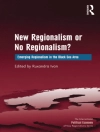Civil Society Activism in the Middle East analyzes the impact of repression on civil society activism in the Middle East through analyzing the cases of Egypt and Jordan. Sika argues that authoritarian regimes’ repressive strategies toward civil society actors vary depending on recent historical experience with regime breakdown and/or continuity. Authoritarian regimes that go through breakdown and that transition from one autocratic rule to another increase repression against all civil society actors in an effort to pre-empt large-scale mobilization. This instils fear into civil society actors, who as a result either disengage from civic and political activism or turn to different forms of participation, such as social entrepreneurship. On the other hand, long-standing authoritarian regimes that have not faced breakdown utilize targeted repression and co-optation strategies while tolerating civic and political activism, as well as some forms of contentious activities. Civil society actors in these regimes are able to grasp political opportunities to mobilize for demonstrations at certain times and in certain spaces, and to develop coalition partnerships to push the regime to advance some reforms and change.
Nadine Sika
Civil Society and Activism in the Middle East [PDF ebook]
Regime Breakdown vs. Regime Continuity
Civil Society and Activism in the Middle East [PDF ebook]
Regime Breakdown vs. Regime Continuity
Mua cuốn sách điện tử này và nhận thêm 1 cuốn MIỄN PHÍ!
Ngôn ngữ Anh ● định dạng PDF ● Trang 176 ● ISBN 9780198882510 ● Nhà xuất bản OUP Oxford ● Được phát hành 2024 ● Có thể tải xuống 3 lần ● Tiền tệ EUR ● TÔI 9474929 ● Sao chép bảo vệ Adobe DRM
Yêu cầu trình đọc ebook có khả năng DRM












